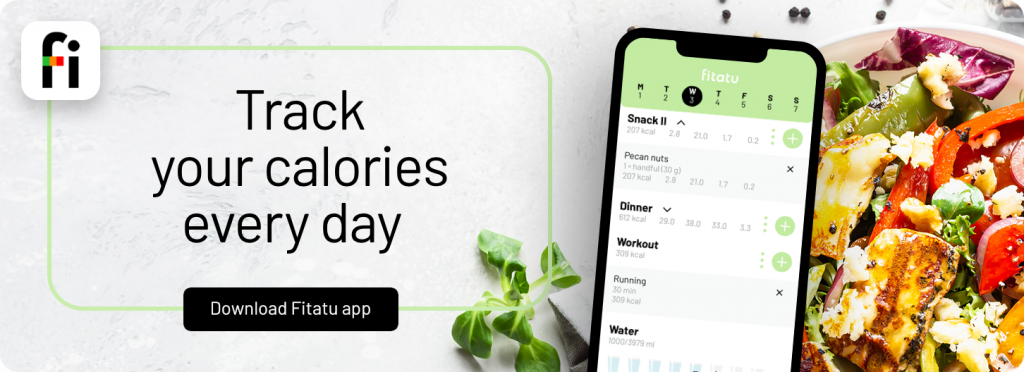How can I lose 1 pound a week: A practical guide for everyone

Losing weight can be a daunting task, but with the right approach, shedding one pound a week is an achievable goal for everyone. Understanding the principles behind weight loss, such as calorie deficit and physical activity, is key to success. This guide aims to provide practical, straightforward advice on “how can I lose 1 pound a week,” breaking down the process into manageable steps. By focusing on simple dietary changes, exercise routines, and lifestyle adjustments, we will explore effective strategies to help you reach your weight loss goals confidently and sustainably. Let’s embark on this journey together and make healthy living a reality.
Understanding Weight Loss Basics
Calories In vs. Calories Out
The principle of “calories in vs. calories out” is fundamental to understanding weight loss. Essentially, to lose weight, you need to burn more calories than you consume. The average person needs around 2,000 to 2,500 calories a day to maintain their weight, depending on factors like age, sex, and activity level. To lose one pound a week, you need to create a calorie deficit of about 3,500 calories, which translates to cutting roughly 500 calories per day. This can be achieved through a combination of dietary changes and increased physical activity. For instance, eating smaller portions, choosing lower-calorie foods, and exercising regularly can help you achieve this deficit. Remember, it’s not just about eating less but also about consuming nutritious foods that keep you full and energised throughout the day.
The Role of Metabolism
Metabolism plays a critical role in weight loss. It refers to the process by which your body converts what you eat and drink into energy. Even at rest, your body needs energy for basic functions like breathing, circulating blood, and repairing cells. This is known as your basal metabolic rate (BMR). Several factors influence your BMR, including age, sex, muscle mass, and genetics. Generally, muscle burns more calories than fat, so increasing your muscle mass through strength training can boost your metabolism. Additionally, small, frequent meals can help keep your metabolism active throughout the day. It’s also important to stay hydrated, as water is essential for many metabolic processes. By understanding and optimising your metabolism, you can make it work in your favour, helping you shed those pounds more effectively.
Importance of Consistency
Consistency is key when it comes to losing weight. It’s not about making drastic changes overnight but about making sustainable, long-term adjustments to your lifestyle. Consistent efforts in maintaining a calorie deficit, engaging in regular physical activity, and making healthier food choices will yield better results than sporadic, extreme measures. Setting realistic goals and tracking your progress can help you stay on course. For instance, keeping a food diary or using a fitness app can provide insights into your eating habits and exercise routines. It’s also important to be patient and understand that weight loss is a gradual process. There will be weeks where the scale doesn’t budge, but staying consistent with your healthy habits will eventually lead to success. Remember, it’s about making progress, not perfection. Small, consistent changes can add up to significant results over time.
Creating a Sustainable Diet Plan
Balanced Nutritional Choices
Making balanced nutritional choices is essential for a sustainable diet plan. Rather than eliminating entire food groups, focus on incorporating a variety of foods that provide essential nutrients. Aim to fill half your plate with fruits and vegetables, which are rich in vitamins, minerals, and fibre. Whole grains like brown rice and oats should make up a quarter of your plate, offering sustained energy. The remaining quarter should be dedicated to lean proteins such as chicken, fish, beans, or tofu, which are vital for muscle maintenance and repair. Healthy fats, found in nuts, seeds, and avocados, should also be included in moderation. Avoid processed foods high in sugars, unhealthy fats, and empty calories. Instead, opt for whole, unprocessed foods that keep you full and satisfied. By making balanced nutritional choices, you can create a diet plan that supports your weight loss goals while ensuring you get all the nutrients your body needs to thrive.
Planning Your Meals
Planning your meals is an effective strategy for maintaining a sustainable diet. By preparing meals in advance, you can control portion sizes and ensure you are consuming balanced, nutritious foods. Start by creating a weekly meal plan that includes breakfast, lunch, dinner, and snacks. This helps you make mindful choices and avoid last-minute unhealthy options. Consider batch cooking and storing meals in portioned containers, making it easier to stick to your plan throughout the week. Incorporate a variety of foods to keep your meals interesting and satisfying. Additionally, having healthy snacks on hand, like fruit, nuts, or yoghurt, can prevent overeating during meals. Planning your meals also helps you manage your grocery shopping more efficiently, reducing waste and saving money. By dedicating some time each week to meal planning, you can set yourself up for success and make healthy eating a seamless part of your daily routine.
Avoiding Common Pitfalls
Avoiding common pitfalls is crucial when creating a sustainable diet plan. One frequent mistake is skipping meals, thinking it will save calories. However, this often leads to overeating later in the day. Instead, aim for regular, balanced meals to keep your energy levels stable. Another pitfall is relying on fad diets that promise quick results but are not nutritionally balanced. These diets are hard to maintain and often lead to regaining lost weight. Additionally, emotional eating can derail your efforts. Learn to recognise triggers and find alternative coping mechanisms, such as exercise or talking to a friend. Portion control is also essential; even healthy foods can contribute to weight gain if eaten in large quantities. Lastly, don’t deprive yourself completely of treats. Allowing occasional indulgences can prevent feelings of deprivation and help you stick to your plan long-term. By being aware of these pitfalls, you can navigate your weight loss journey more effectively.
Effective Exercise Routines
Cardio for Weight Loss
Cardio exercises are highly effective for weight loss as they increase your heart rate and help burn calories. Activities like running, cycling, swimming, and brisk walking are excellent options. Aim for at least 150 minutes of moderate-intensity cardio or 75 minutes of high-intensity cardio each week to see significant results. Interval training, alternating between high and low-intensity activities, can also be particularly effective in burning fat. For instance, you could alternate between sprinting and walking during a run. Additionally, incorporating a variety of cardio exercises can keep your routine interesting and engage different muscle groups. Remember to start at a pace that suits your current fitness level and gradually increase the intensity and duration as you become more comfortable. Consistency is key; regular cardio workouts will help you create the calorie deficit needed to lose one pound a week. Always consult with a healthcare professional before starting a new exercise regimen.
Strength Training Benefits
Strength training offers numerous benefits for weight loss and overall health. Unlike cardio, strength training focuses on building muscle, which in turn increases your basal metabolic rate (BMR). This means you’ll burn more calories even at rest. Exercises like weight lifting, resistance band workouts, and bodyweight exercises such as push-ups and squats are effective ways to build muscle. Aim to include strength training sessions at least two to three times a week, targeting different muscle groups. Besides aiding in weight loss, strength training improves bone density, reduces the risk of injury, and enhances functional fitness, making everyday tasks easier. Additionally, it can boost your mood and mental well-being by releasing endorphins. Remember, it’s important to use proper form to prevent injuries, so consider consulting a fitness professional if you’re new to strength training. By incorporating strength training into your routine, you can achieve a balanced approach to weight loss and overall fitness.
Combining Workouts for Best Results
Combining different types of workouts can yield the best results for weight loss and overall fitness. A balanced exercise routine should include both cardio and strength training. Cardio helps burn calories and improve cardiovascular health, while strength training builds muscle and boosts your metabolism. By alternating between these workout types, you can maximise fat loss and enhance muscle tone. For example, you might do cardio exercises like running or cycling on some days, and strength training exercises like weight lifting or bodyweight workouts on others. Additionally, incorporating flexibility exercises, such as yoga or stretching, can improve your range of motion and reduce the risk of injury. Mixing up your workouts keeps your routine interesting and prevents plateauing, where your progress stalls. This varied approach also ensures you’re engaging different muscle groups and energy systems, leading to more comprehensive fitness gains. Combining these elements can help you achieve a well-rounded, effective exercise routine.
Tracking Your Progress
Keeping a Food Diary
Keeping a food diary is an effective way to track your progress and stay accountable to your weight loss goals. By recording everything you eat and drink, you gain insight into your eating habits and can identify areas for improvement. A food diary can help you monitor portion sizes, caloric intake, and nutritional balance. It also makes you more mindful of what you consume, reducing the likelihood of mindless snacking or overeating. You can use a notebook, an app, or an online tool to keep your diary. Be honest and detailed in your entries, including the time of day and your hunger levels. Reviewing your diary regularly can reveal patterns and triggers for unhealthy eating, allowing you to make more informed choices. Additionally, sharing your food diary with a healthcare professional or a dietitian can provide valuable feedback and support. By keeping a food diary, you can better understand your eating behaviours and make data-driven adjustments to reach your weight loss targets.
Using Fitness Apps
Using fitness apps can greatly enhance your ability to track your progress and stay committed to your weight loss goals. These apps offer a range of features, such as tracking your caloric intake, logging your workouts, and monitoring your weight. Some popular options include MyFitnessPal, Fitbit, and Lose It!. These apps provide a convenient way to keep all your health data in one place, making it easier to see your progress over time. Many apps also offer personalised recommendations based on your goals and activity levels, helping you make more informed choices. Additionally, fitness apps often include community features, allowing you to connect with others on similar journeys for motivation and support. Real-time feedback and reminders can keep you accountable and encourage consistency. By using a fitness app, you can turn your smartphone into a powerful tool for achieving your weight loss objectives and maintaining a healthier lifestyle.
Setting Realistic Goals
Setting realistic goals is crucial for maintaining motivation and achieving long-term success in weight loss. Unrealistic expectations can lead to disappointment and may cause you to abandon your efforts prematurely. Start by defining clear, attainable objectives, such as losing one pound a week. Break down your goals into smaller, manageable steps. For example, aim to reduce your daily caloric intake by 500 calories or commit to exercising for 30 minutes a day. It’s also helpful to set both short-term and long-term goals. Short-term goals can provide immediate motivation, while long-term goals keep you focused on the bigger picture. Celebrate small victories along the way to stay encouraged. Additionally, make sure your goals are specific, measurable, and time-bound. Instead of saying “I want to lose weight,” say “I want to lose 10 pounds in three months.” By setting realistic and well-defined goals, you can track your progress effectively and stay committed to your weight loss journey.
Staying Motivated and Overcoming Challenges
Building a Support System
Building a support system can significantly enhance your weight loss journey and help you overcome challenges. Surrounding yourself with supportive friends, family, or even joining a weight loss group can provide encouragement and accountability. Sharing your goals and progress with others can make you feel more committed and less likely to give up. Additionally, a support system can offer practical advice and emotional support during difficult times. Consider partnering with a workout buddy to make exercise more enjoyable and consistent. Online communities and social media groups focused on weight loss can also provide a wealth of resources and motivation. Professional support, such as a dietitian or personal trainer, can offer expert guidance tailored to your needs. By building a network of supportive individuals, you create an environment that fosters success and helps you stay motivated, even when faced with setbacks. Remember, you don’t have to go through this journey alone.
Dealing with Plateaus
Dealing with plateaus is a common challenge in any weight loss journey. A plateau occurs when your weight loss stalls despite maintaining your diet and exercise routine. This can be frustrating, but it’s important to stay patient and persistent. First, reassess your current habits. As you lose weight, your body’s caloric needs decrease, so you may need to adjust your caloric intake or increase your physical activity. Incorporate variety into your workouts to challenge different muscle groups and boost your metabolism. Strength training can be particularly effective during a plateau as it builds muscle and increases your basal metabolic rate. Additionally, ensure you are getting enough sleep and managing stress, as both can impact your weight loss efforts. Sometimes, a short break from your routine, followed by a fresh approach, can reignite progress. Remember, plateaus are a normal part of the process. Stay consistent, make necessary adjustments, and your progress will resume.
Celebrating Small Wins
Celebrating small wins is essential for maintaining motivation and recognising progress in your weight loss journey. Acknowledging your achievements, no matter how minor they may seem, can boost your morale and keep you focused on your long-term goals. For instance, if you’ve managed to exercise consistently for a week or resisted unhealthy snacks, take a moment to celebrate these victories. Rewarding yourself doesn’t have to involve food; consider non-food rewards like a relaxing bath, a new workout outfit, or a day out with friends. Keeping a journal of your accomplishments can also serve as a motivational tool, reminding you of how far you’ve come. Sharing your successes with your support system can provide additional encouragement and validation. By celebrating small wins, you create positive reinforcement that helps you stay committed and motivated, making your weight loss journey more enjoyable and sustainable.
Fitatu® App
Do you use Fitatu® but want more convenience and an easier way to achieve your goals? Choose Fitatu® Premium or Fitatu® Premium+AI with the new AI Estimation feature!
What else can you find in Fitatu® Premium?
- Over 2,000 recipes plus dozens of new ones every month,
- additional intermittent fasting plans,
- possibility to create shopping lists,
- 6 pre-prepared meal menus,
- filtering of products and recipes,
- more synchronization with fitness apps,
- access to the app in the web version,
- no adverts!
Fitatu Support Group
Join our Facebook community! Discover inspiring recipes daily, receive support from other healthy eating enthusiasts, and benefit from professional dietitian advice from Fitatu. Get inspired and take care of your health in the best company!

Recent articles:
- Overview of materials intended for contact with food. What should kitchenware be made of?
- Demystifying fat: How many calories are in a fat?
- Sweet but smart snacks for kids : A look at popular sweets and healthier alternatives
- Fat in a weight loss diet — Enemy or ally?
- 11 tips on how to prepare meals faster










